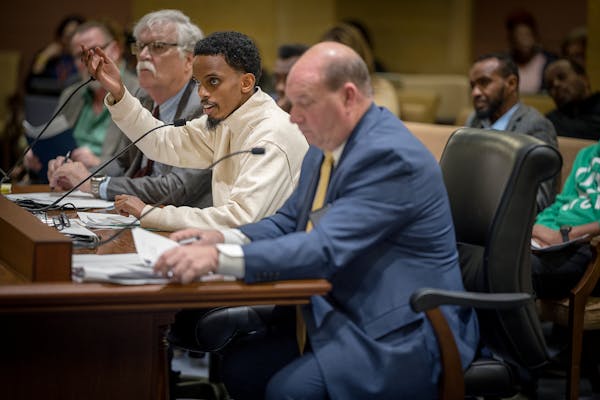I thought this time it would be different.
I thought there would be no tears.
But I was wrong.
It's tough to say goodbye to an old friend. Especially when it's forever.
That's what I had to do the other day. Abby, my 15-year-old black Lab, had reached the end of the line. Her rear legs refused to work, her eyes were clouded with cataracts and she was a bony shell of her former, athletic self. She had been frail for months, but when she stopped eating and just looked at me when I urged her to get up, I knew the time had come. I didn't want her to suffer.
As I scooped her in my arms and carried her to the car for her last trip, I thought I'd be ready for the moment. I had done this once before, years ago, with my first hunting dog.
But I guess you never really are prepared to confront death.
"It's only a dog," I told myself. But, of course, they become so much more. They become part of the family. They help mark time. With Abby always underfoot, my three girls grew up into teenagers, then women. They watched in awe as she delivered litters of tiny black puppies. They snuggled with her in our tent each summer when we paddled in the Boundary Waters. Abby loved to swim after the girls on those trips, and they laughed when she dunked her head under water and pulled rocks from the lake.
And for a dozen years she accompanied me on countless hunting trips, chasing ruffed grouse, waterfowl and pheasants across the Midwest and Canada. She became my closest hunting buddy. We shared motel rooms and long drives to South Dakota. She didn't complain about missed shots. Or crummy accommodations.
Early on, I knew I had a winner. Abby had a keen nose, boundless energy and a desire to please. She was a great hunting dog, despite my shortcomings as a trainer. She made retrieves that amaze me still:
• I once sent her across a 40-yard river on a blind retrieve of a pheasant. She gamely swam across, scoured the riverbank until she found the bird, then swam back.
• She got the scent of a crippled pheasant in Iowa once, on the edge of an expansive corn stubble field that went to the horizon. Nose to the ground, she sprinted across the field until she disappeared, at least a half-mile away. My hunting partner and I waited anxiously, not sure whether I had just lost my dog. Then we spotted a black dot on the horizon, and soon Abby was back -- with the rooster in her mouth.
• And there was the downed snow goose in Saskatchewan that she swam after. She rounded a bend and headed out into waves and thick vegetation and disappeared. My partner and I paddled our canoe after her, but found nothing. We searched futilely for her. Finally, as we headed back to our blind, unsure what to do, we saw her swimming gamely for us, dragging a wreath of weeds, but no bird. We pulled her in, relieved, and paddled back to our decoy spread. There floating in the water was our snow goose, right where Abby had left it before leaving to search for us.
But the moments I'll perhaps member most are when she used to nudge my arm or hand, seeking a pat on the head or scratch of her ear. And the time she rested her muzzle on my shoulder while we drove home from a hunt.
She was a wonderful dog that brought us great joy. And left us many treasured memories. I'll think of her this fall when I tramp hunting fields where she and I walked together. And I'll miss her.
Before the injection that would end her life, my wife, daughter and I stroked her head one last time. The tears flowed. There wasn't much left to say.
I leaned over, kissed her on the forehead and just said "thanks."
Doug Smith • dsmith@startribune.com
Texas San Antonio big man Edmonds commits to Gophers as a transfer

Rochester high school baseball program honors longtime coach

Change at the top looms in high school softball rankings

